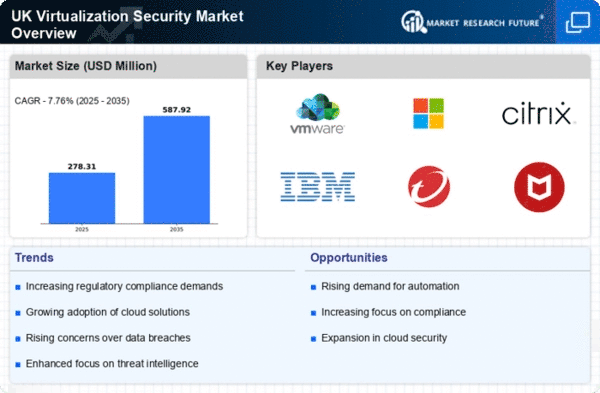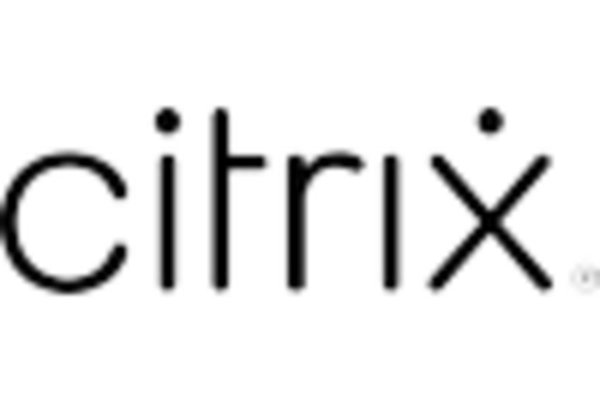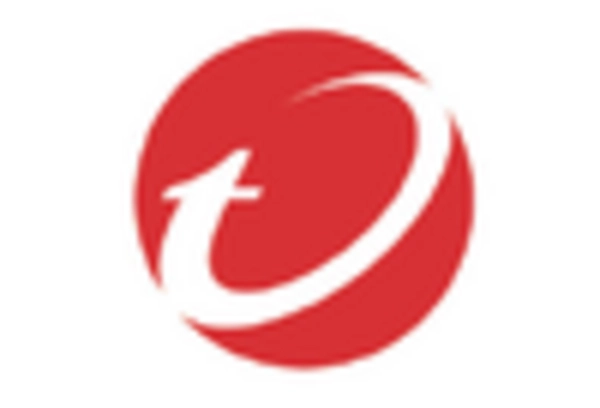Regulatory Compliance Requirements
Regulatory compliance is a crucial driver for the virtualization security market in the UK. Organizations are mandated to adhere to various data protection regulations, such as the General Data Protection Regulation (GDPR) and the Data Protection Act. These regulations necessitate stringent security measures for virtualized environments to ensure the protection of sensitive data. Failure to comply can result in hefty fines, which can reach up to £17.5 million or 4% of annual global turnover, whichever is higher. As a result, businesses are increasingly investing in virtualization security solutions to meet compliance requirements and avoid potential penalties. This trend is expected to fuel the growth of the virtualization security market as organizations prioritize compliance in their security strategies.
Growing Cybersecurity Threat Landscape
The increasing frequency and sophistication of cyber threats is a primary driver for the virtualization security market. In the UK, organizations are facing a surge in cyberattacks, with reports indicating a rise of over 30% in incidents targeting virtual environments. This alarming trend compels businesses to invest in robust security solutions to protect their virtualized infrastructures. The virtualization security market is responding to this demand by offering advanced security measures, including intrusion detection systems and encryption technologies. As organizations strive to safeguard sensitive data and maintain operational continuity, the need for comprehensive virtualization security solutions becomes paramount. This heightened focus on cybersecurity is likely to propel market growth, as companies seek to mitigate risks associated with virtual environments.
Emergence of Advanced Security Technologies
The emergence of advanced security technologies is reshaping the virtualization security market in the UK. Innovations such as artificial intelligence (AI), machine learning (ML), and blockchain are being integrated into virtualization security solutions to enhance threat detection and response capabilities. These technologies enable organizations to proactively identify vulnerabilities and mitigate risks associated with virtual environments. The virtualization security market is witnessing a shift towards more sophisticated solutions that leverage these advancements, as businesses seek to stay ahead of evolving cyber threats. This trend suggests a potential for significant growth in the market, as organizations increasingly adopt cutting-edge technologies to fortify their virtualization security postures.
Increased Adoption of Virtualization Technologies
The widespread adoption of virtualization technologies across various sectors in the UK is significantly influencing the virtualization security market. As organizations increasingly migrate to virtualized environments to enhance efficiency and reduce costs, the need for security solutions tailored to these environments becomes critical. Recent data suggests that approximately 70% of UK businesses have implemented some form of virtualization, creating a substantial market for security solutions. This trend indicates a growing recognition of the benefits of virtualization, such as improved resource utilization and scalability. Consequently, the virtualization security market is likely to expand as companies seek to protect their virtual assets from emerging threats and vulnerabilities.
Demand for Business Continuity and Disaster Recovery
The need for business continuity and disaster recovery solutions is driving the virtualization security market in the UK. Organizations are increasingly recognizing the importance of maintaining operational resilience in the face of potential disruptions, such as cyberattacks or natural disasters. Virtualization technologies facilitate efficient backup and recovery processes, making them essential for disaster recovery strategies. Recent surveys indicate that over 60% of UK businesses consider disaster recovery a top priority, leading to increased investments in virtualization security solutions that support these initiatives. As companies seek to ensure uninterrupted service delivery and protect critical data, the virtualization security market is likely to experience robust growth, driven by the demand for effective business continuity solutions.
















